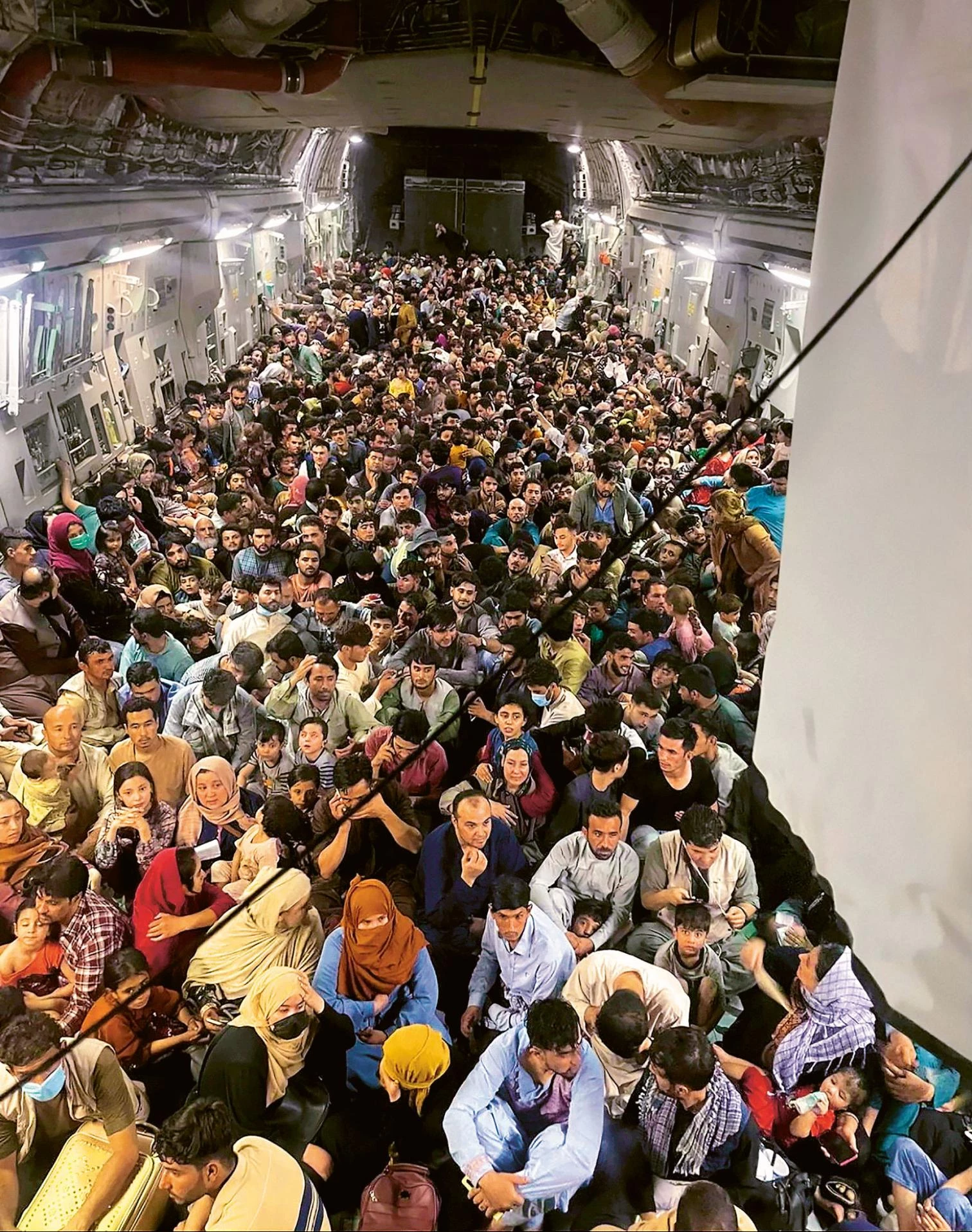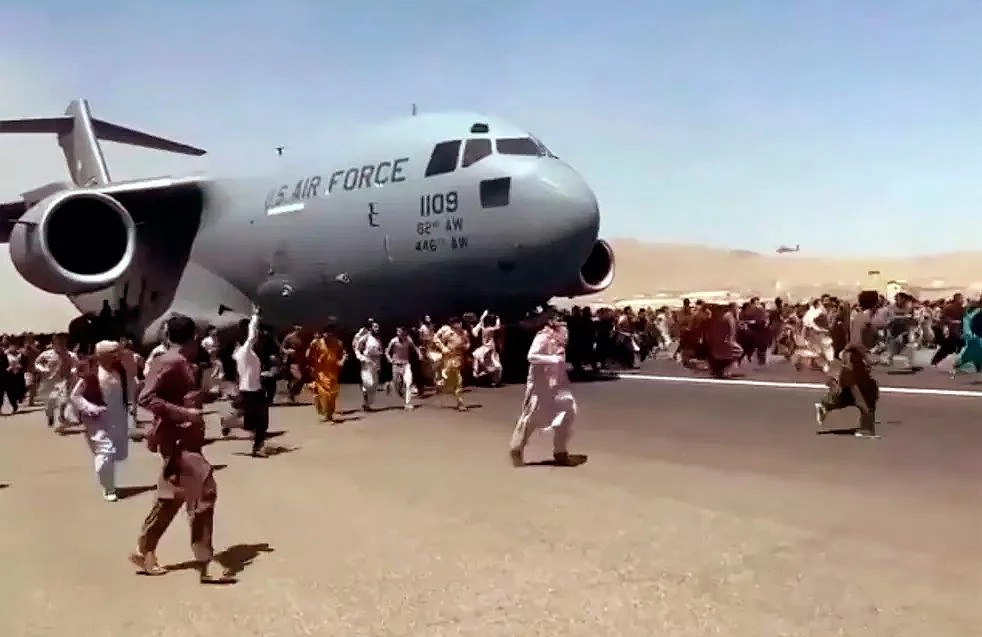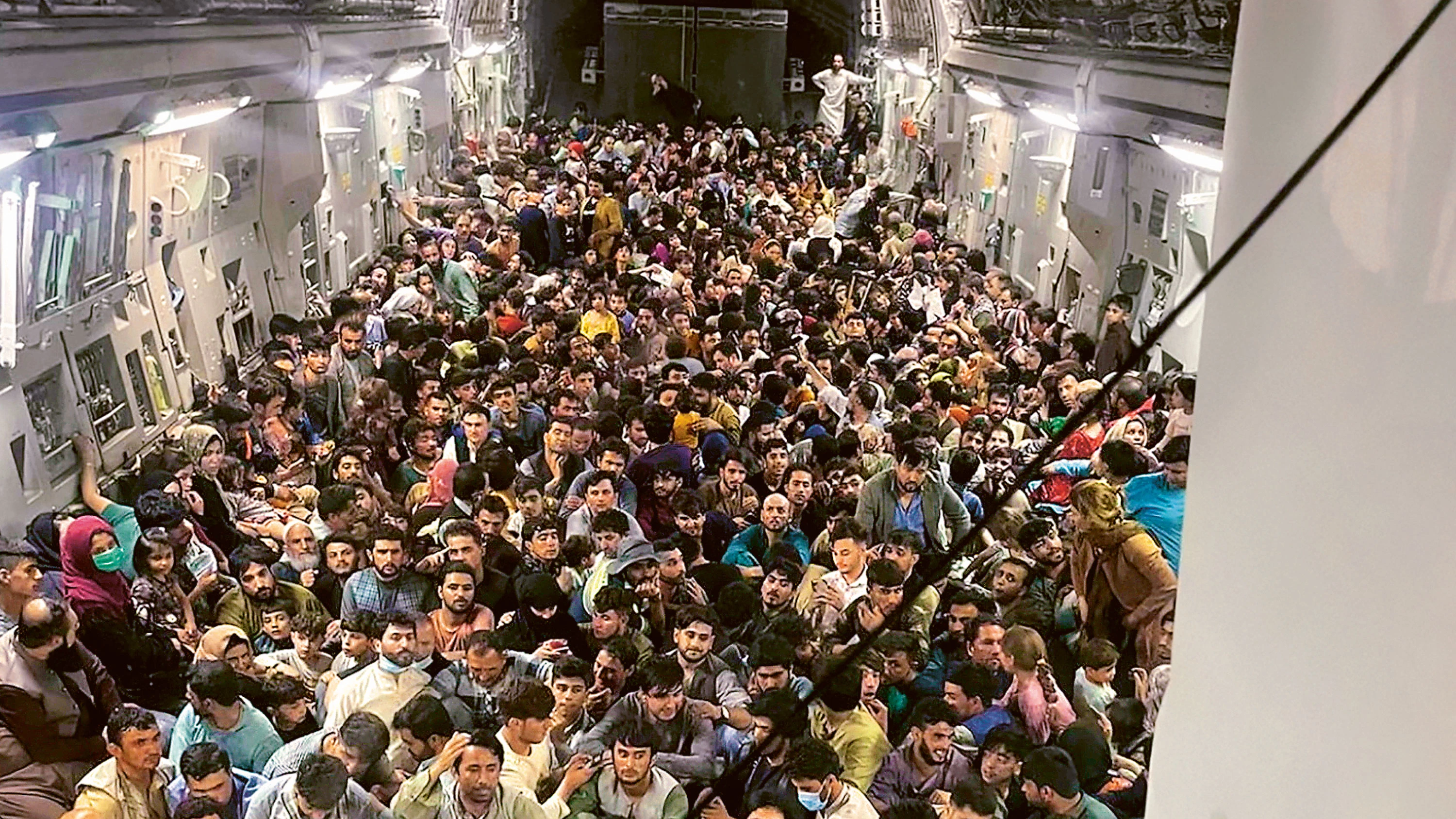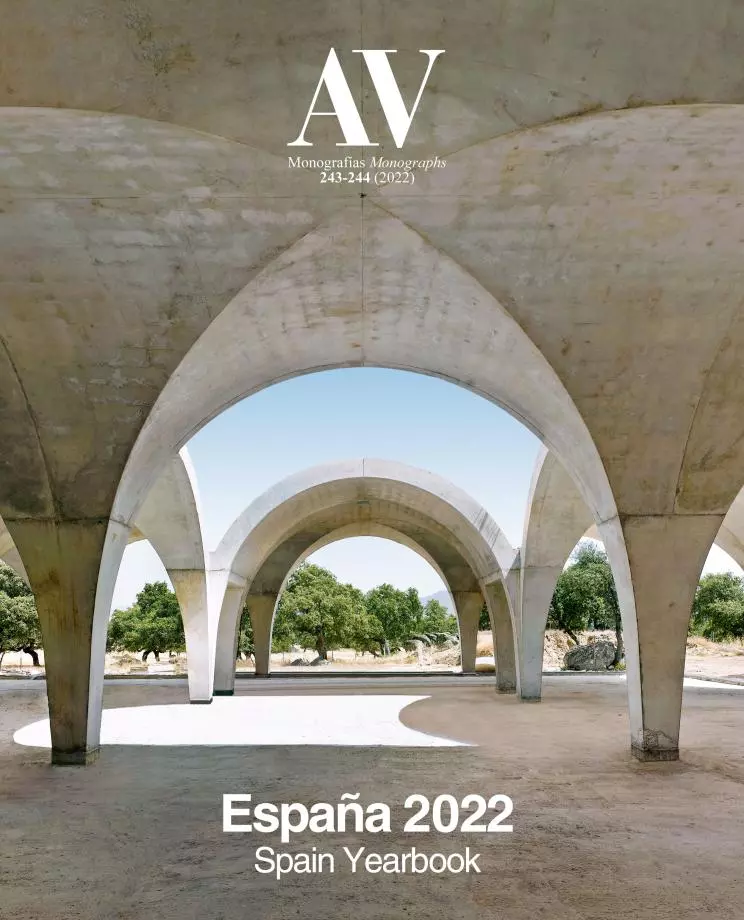
Evacuees aboard a Boeing C-17 Globemaster III © Chris Herbert/US Armed Forces through The New York Times
The geopolitical disaster of Afghanistan is also a cultural tragedy. After Kabul fell on 15 August, the images of Afghans clinging to airplanes in motion or packed tight together in cargo holds drew the world’s attention to the humanitarian crisis, because these multitudes on the run convey well the panic provoked by Taliban barbarity. The chaos of the evacuation highlights the humiliation of the USA and NATO, a historic turning point marking the decline of the West and its values, from the spirit of the Enlightenment to liberal democracy, and exposes Washington’s incapacity to wield world leadership: after twenty years of occupation, the corrupt regime imposed by foreign armies has collapsed without a fight, giving in to a theocracy that oppresses women, denies freedoms, and exports refugees and heroin.
The Mujahideen armed by the USA in the 1980s to debilitate the USSR were joined in the 1990s by students of Pakistani madrasas to govern from 1996 to 2001 a tribal territory disputed for centuries by the great civilizations that surround it, and which has seen many empires tumble in its abrupt geography. The Taliban now back in power are the same who sheltered Osama bin Laden and Al Qaeda, the same who blew up the Bamiyan Buddhas, so it is hard to give credence to their current promises of moderation, whether to not provide a haven for terrorists or to guarantee women’s rights to study and work; but it is also true that they are less corrupt than the preceding regime and that their easy takeover of cities has given them the legitimacy that both Moscow and Beijing have already recognized.
If 9/11 triggered the American intervention and the end of Taliban rule, that same year 2001 is marked in Afghanistan by another infamous date, the 2 March that saw the start of the demolition of the Buddhas: the giant statues, carved into a cliff 1500 years ago, were destroyed because they were judged to be idols violating the Koran, despite having been respected by different Islamic invasions, and despite reminders from allies of the importance given in Egypt to monuments of cultures preceding the Muslim one. Today, the empty niches of the Buddhas make us doubt the recent commitment of the Taliban to protect “all relics and antiquities,” and a campaign of cultural cleansing has indeed already begun, beheading statues and razing Islamic constructions that contradict their orthodoxy.
The international alliance that has been present in the country tried to invest in culture, to varying degrees of success. Germany financed a project to reconstruct the Buddhas, with no tangible fruits; India exported its democratic experience building the new parliament, a work with Kahnian echoes and postmodern details, crowned with a monumental bronze dome; and the Aga Khan Trust for Culture refurbished a hundred heritage constructions and complexes, including the old city of Kabul, the citadel of Herat, or the gardens of the tomb of Babur, founder of the Mughal Empire: endeavors over which loom the shadows of a religious dictatorship at odds with the plurality of cultures that has characterized this timeless crossroads between East and West.
The crowds clinging on to departing airplanes in Kabul and those crammed aboard C-17 cargo aircrafts of the US military eloquently portray the tragic defeat of the West in the Afghanistan War.








